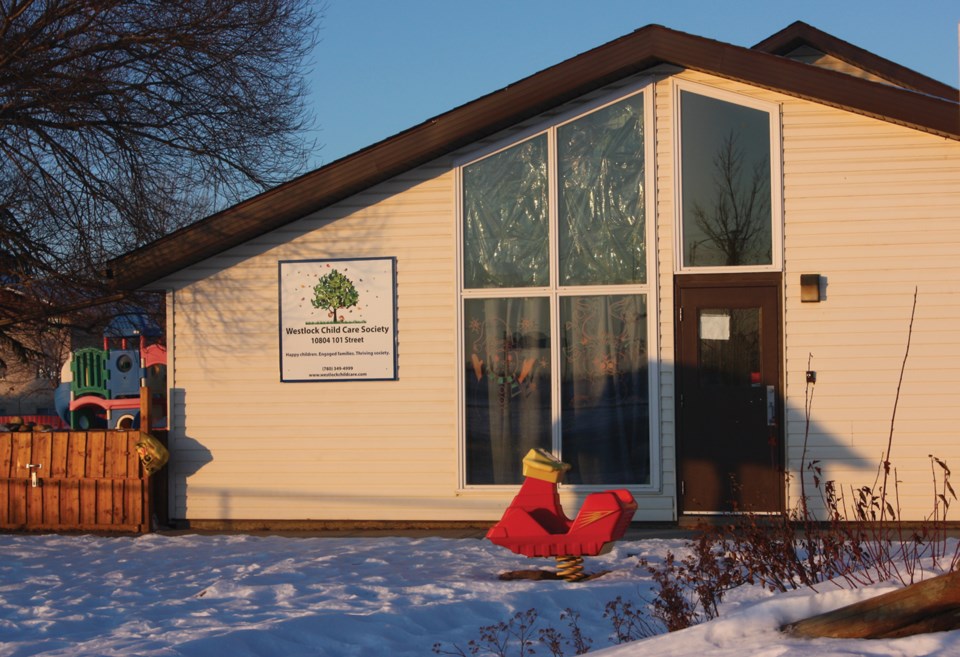WESTLOCK - A two-month extension of the $25-a-day daycare pilot program in Westlock and the 21 other communities that were initially chosen to take part, is cold comfort for parents and child care staff, as the fate of the program past June remains unclear.
The three-year pilot program for those 22 childcare facilities was scheduled to end in March 2020, but has been extended until June, while the 100 other facilities that are part of Phase 2 will be funded through March 2021, Alberta’s Child Services Minister Rebecca Schulz noted via a Jan. 15 Twitter post.
“We are committed to working with all Early Learning and Childcare Centres to ensure the families most in need continue to be supported to access the workforce or pursue post-secondary education,” she said.
“Some families have received notice of the pilot ending at their child care centre, per the original terms of the agreement for the first 22 centres, as established under the former government. We are extending the program for those 22 centres until June of this year to ensure a smooth transition to childcare subsidies through the summer, as we work on a new bilateral funding agreement with the federal government.”
Reviewing the data already collected through the pilot program will help inform the government in moving forward, she said.
Westlock Child Care Society executive director Christine Villeneuve, was taken aback when she found out about the extension, through the media, last week.
“Learning from the media that the project was extended was really unacceptable, I had a reporter from Edmonton call me to tell me,” she said.
“I really have a lot of questions, not only on behalf of families, but on behalf of operators and educators … I sent a message to my educators yesterday that they might hear this on the news, but I don’t know anything yet. I haven’t received any official news. When I know, I have always been open with the educators and with our families, because they deserve to know. They look to me as an informed resource, and I’m not informed, so I don’t know what to tell them.”
Villeneuve has been using social media to reach out to parents and educators across the province, urging them to write letters, speak to their MLAs and tell their stories.
In Westlock alone, Villeneuve tells of families with multiple children that will have to move from full-time enrolment to part-time or casual care. Her staff, who rely on a living wage are not sure about the future of their jobs, and some will choose to stay home with their children and remove themselves from the workforce.
“You pay more for childcare in the first five years, than you do sending a child to university,” said Villeneuve.
“I have women, who are professionals and have many years of education behind them who are saying they don’t know if it’s worth working. Those women pay income taxes to be able to support the province, if we were to invest in affordable, quality childcare.”
As child services critic, NDP MLA Rakhi Pancholi has been following the situation with special interest. She has been in touch with representatives from all 22 centres, including Villeneuve.
“The UCP government has not given any information to these centres on the future of the program,” she said during a Jan. 15 press conference, placing blame on the government for “making life unaffordable for families.”
“For these centres, it means they’re going to have to lay off staff, it means they’re going to have to significantly increase child care fees because they’ve heard no information from the minister that the program will continue.”
Pancholi said parents currently taking advantage of the program will go from paying roughly $520 per month to well over $1,000 if the program is not further extended, per child.
Villeneuve pointed out it’s difficult to provide a quality service when parents cannot afford a quality program and there’s a lot more to early childhood education than just dropping your kids off to be babysat so they can have their diaper changed.
“Historically, in early childhood education and with educators across the world, we are undervalued, we are underpaid and it’s not seen as a benefit to society,” she said, noting that numerous studies have shown the positive value of early education programs over the long-term.
Villeneuve said she will continue asking questions, but doesn’t expect answers to be forthcoming, because nobody seems to have them. There has been no formal dialogue with anyone in government, which she finds frustrating.
“Nobody seems to know anything, and again, to hear it from media is a pretty low blow. You’re dealing with families and communities, and that is not acceptable.”
Despite that lack of dialogue, Villeneuve remains hopeful the research that shows the value of affordable childcare is taken into consideration by the government.



